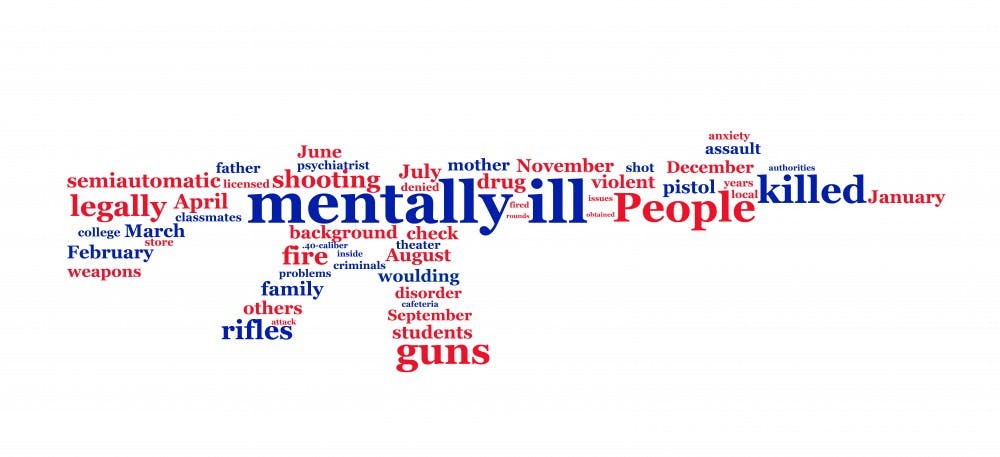Following the recent school shootings in America, politicians and the news media have named mental illness as the reason for these incidents.
It’s not just these sources that think mental illness is a significant cause of mass shootings. A Washington Post and ABC News poll, for example, found that 63 percent of Americans believe mental illness is the main reason behind mass shootings.
The Editorial Board cautions that using mental health as a reason for the terrible wave of gun violence in America could unfairly stigmatize those living with mental health disorders.
Many researchers have found that people who have mental health issues are actually far more likely to be the victims of violence than to be the causes of it.
The American Journal of Public Health found earlier this year that less than 5 percent of the country’s 120,000 deaths related to gun violence between 2001 and 2010 were perpetrated by mentally ill people.
Also, according to the Journal, people diagnosed with schizophrenia, a severe psychiatric disorder, are 65 to 130 percent more likely to be victims of a crime than to commit one themselves.
So the evidence supporting a strong link between mental illness and gun violence is flimsy at best and outright dangerous at its worst.
The Journal also claimed the “availability of guns is also considered a more predictive factor than is psychiatric diagnosis in many of the 19,000 U.S. completed gun suicides each year,” according to its report.
If the U.S. is serious about stopping gun violence, addressing this statistic should be the top priority for lawmakers.
Though mental health resources in America are also in need of drastic investment in availability and services, blaming mental health as the sole reason why gun violence exists dismisses other reasons mass shootings occur.
Part of the reason our society uses poor mental health as a justification for mass shootings is because the use of the term is extremely broad.
According to the New Yorker, mental illness can be classified as any disorder listed in the Diagnostic and Statistical Manual of Mental Disorders.
Several other sources besides the manual can also change the category of mental illness.
“Diagnostic criteria, too, may vary from state to state, hospital to hospital and doctor to doctor,” Maria Konnikova of the New Yorker wrote.
Under this logic, people could point to virtually every mental health disorder that is listed either in the manual as reason for the recent spike in mass shootings in America.
Such rhetoric not only is prejudiced against those living with mental health disorders, it also fails to let lawmakers, legislators and advocates explore additional reasons for gun violence.
The conversation about mass shootings can include some mention of mental illness, but it should not be classified as the be-all, end-all for the reason our country has faced so much tragedy recently.




